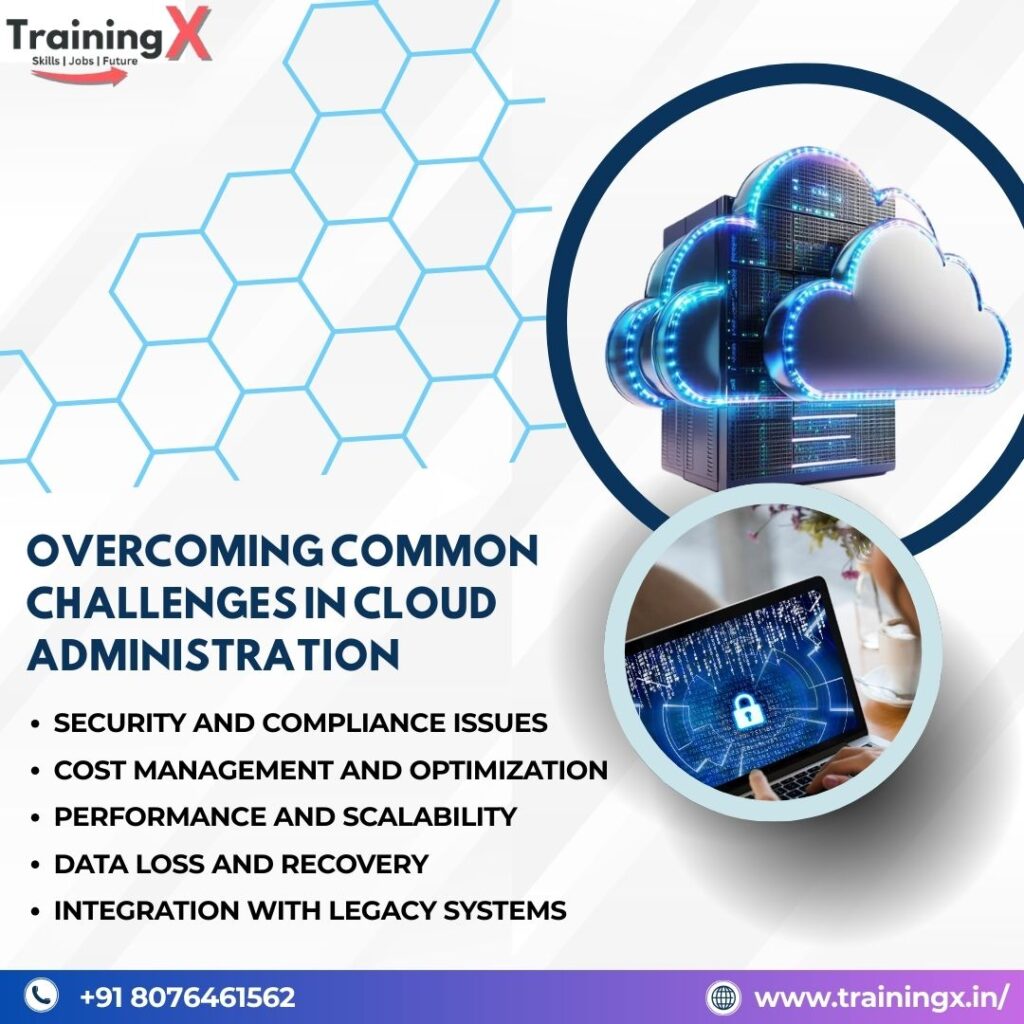As cloud computing continues to dominate the tech landscape in 2025, the demand for cloud professionals, especially cloud administrators, is soaring. Organizations of all sizes are moving their infrastructure to the cloud, increasing the need for skilled experts who can manage these environments efficiently. However, many aspiring professionals are confused about the skills required for a cloud administrator, what certifications to pursue, and how to begin their career journey.
In this guide, we will simplify the roadmap by detailing every essential skill required for a cloud administrator. Whether you’re a recent graduate or an IT professional looking to specialize, this article will help you navigate your path to becoming a successful cloud administrator.
Understanding the Role of a Cloud Administrator
A cloud administrator manages and maintains cloud-based systems, ensuring they run smoothly, securely, and efficiently. They handle tasks like setting up servers, managing user access, monitoring performance, and fixing issues to keep everything running without downtime. Cloud administrators are essential because they keep cloud systems secure, fast, and always available. Without them, businesses risk downtime, data loss, and performance issues that can seriously impact operations. The career outlook for cloud administrators is strong, with high demand and competitive salaries. Job opportunities are growing rapidly as more companies move to cloud-based infrastructure across various industries.
Core Technical Skills Required for a Cloud Administrator
To become a successful cloud administrator, mastering several core technical skills is essential. These skills ensure smooth operations, security, and performance of cloud infrastructure. Here’s a breakdown:
1. Proficiency in Cloud Platforms
Proficiency in cloud platforms is a fundamental skill required for a cloud administrator. This entails a panoramic understanding of major cloud service providers such as Amazon Web Services (AWS), Microsoft Azure, and Google Cloud Platform (GCP).
- Amazon Web Services (AWS): Familiarity with services like EC2, S3, IAM, and RDS is essential.
- Microsoft Azure: Understanding key Azure services is vital for effective cloud administration. Here’s an overview of three foundational components.
- Google Cloud Platform (GCP): Knowledge of Compute Engine, Cloud Storage, and BigQuery is important.
2. Networking and Infrastructure Knowledge
A cloud administrator must possess a deep understanding of networking and infrastructure components to ensure the seamless operation of cloud environments. This expertise enables the design, implementation, and management of scalable, secure, and efficient cloud architectures.
- Virtual Private Cloud (VPC): A VPC is a virtual network steadfast with your AWS account, providing isolation and control over your cloud resources. Understanding VPCs is crucial for managing network traffic and ensuring security.
- Subnets: Subnets divide a VPC’s IP address range into smaller constituent parts, allowing for better organization and security of resources. Administrators must design subnets to optimize performance and control access.
- Routing Tables: Routing tables arbitrate how traffic is directed within a VPC. Configuring these tables correctly ensures efficient and secure data flow between resources.
3. Operating System Expertise
A cloud administrator must be proficient in managing both Linux and Windows Server environments. Linux is prevalent in cloud infrastructures due to its flexibility and security, while Windows Server is crucial for organizations utilizing Microsoft services. Tasks include user management, system updates, and scripting.
4. Automation and Infrastructure as Code (IaC)
Automation streamlines cloud operations, reducing manual interventions. Tools like Terraform and Ansible enable administrators to define and provision infrastructure through code, ensuring consistency and scalability. Scripting languages such as Python and PowerShell further strengthen automation proficiencies.
5. Security and Compliance Knowledge
Ensuring the security of cloud environments is paramount. Administrators must implement Identity and Access Management (IAM), encryption, and adhere to compliance standards like GDPR and HIPAA. Regular audits and staying informed about regulatory requirements are essential for maintaining a secure cloud infrastructure.
6. Monitoring and Performance Management
Continuous monitoring is vital to maintain optimal cloud performance. Tools such as AWS CloudWatch, Azure Monitor, and Google Stackdriver help in tracking resource utilization, detecting anomalies, and ensuring high availability. Proactive performance management prevents potential downtimes and enhances user experience.
7. Cost Management
Managing cloud expenditures is crucial for organizations. Administrators should utilize budgeting tools, analyze cost reports, and implement strategies like right-sizing resources and leveraging reserved instances to optimize cloud spending. Effective cost management ensures that cloud resources are utilized efficiently without overspending.
Essential Soft Skills for Cloud Administrators
In the dynamic realm of cloud administration, technical expertise is essential, but soft skills are the differentiators that elevate professionals from competent to exceptional:
1. Problem-Solving and Analytical Thinking
Problem-solving and analytical thinking are vital skills for cloud administrators. They enable professionals to assess complex issues, identify root causes, and implement effective solutions swiftly, ensuring the stability and efficiency of cloud environments. These skills are essential for maintaining optimal system performance and minimizing downtime.
2. Communication and Collaboration
In the dynamic landscape of cloud computing, cloud administrators are pivotal in ensuring seamless operations. Effective communication and collaboration are essential skills that enable administrators to navigate complex challenges and work harmoniously with diverse teams.
3. Time Management and Organization
Effective time management and organizational skills are crucial for cloud administrators to handle multiple tasks, meet deadlines, and maintain system performance.
Key Strategies:
- Prioritize Tasks: Use methods like the Eisenhower Matrix to categorize tasks by priority and importance.
- Time Blocking: Allocate specific time slots for focused work to ameliorate productivity.
- Automation: Implement scripts and tools to automate redundant tasks, saving time and reducing errors.
- Regular Audits: Conduct recurrent reviews of systems and formulae to identify areas for improvement.
Overcoming Common Challenges in Cloud Administration
Cloud administrators often face several challenges in managing cloud environments. Here’s an overview of these challenges and strategies to address them:

1. Security and Compliance Issues
Challenge: Ensuring data safeguard and bonding with regulations like GDPR, HIPAA, and NIST is paramount. Misconfigurations, unauthorized access, and evolving cyber threats pose significant risks.
Solution: Effectuate robust security measures such as encryption, multi-factor validation, and regular audits. Utilize cloud-native security tools and stay updated with regulatory requirements. Adopting a Zero Trust security model can further enhance protection.
2. Cost Management and Optimization
Challenge: Without proper monitoring, cloud expenses can escalate due to overprovisioning, unused resources, and unpredictable billing models.
Solution: Utilize budgeting tools, monitor resource usage, and implement cost-saving strategies. Regularly review and adjust resources to align with actual needs. Implementing FinOps practices can also help in optimizing cloud spending.
3. Performance and Scalability
Challenge: Maintaining optimal performance and scalability of cloud resources is crucial, especially during peak usage times.
Solution: Regularly monitor system performance, adjust resources as needed, and plan for future growth. Implementing auto-scaling and load balancing can ensure consistent performance.
4. Data Loss and Recovery
Challenge: Data loss can occur due to accidental deletion, hardware failures, or software errors. The consequences can be detrimental to business operations.
Solution: Implement regular backup procedures and test recovery plans to ensure data integrity. Utilize cloud-native backup solutions and ensure compliance with data retention policies.
5. Integration with Legacy Systems
Challenge: Integrating cloud solutions with existing on-premises systems can be complex and time-consuming.
Solution: Adopt hybrid cloud models and utilize integration tools to ensure seamless connectivity. Modernize legacy applications and consider containerization to facilitate integration.
Take the Next Step in Your Career Journey with TrainingX
Embarking on a new phase in your professional life? TrainingX is here to support you every step of the way. Our programs are designed to equip you with the skills and knowledge needed to excel in today’s dynamic job market.
Why Choose TrainingX?
- Personalized Learning Paths: Tailored courses that align with your career goals.
- Expert Instructors: Learn from industry professionals with real-world experience.
- Flexible Scheduling: Access courses that fit into your busy lifestyle.
- Career Support: Benefit from our dedicated career services, including resume building and interview preparation.
Conclusion
To thrive as a cloud administrator, mastering both technical and soft skills is essential. Proficiency in cloud platforms, networking, security, and automation tools ensures efficient infrastructure management. Equally important are problem-solving abilities, effective communication, and adaptability to navigate the dynamic cloud landscape. Ready to elevate your cloud career? Explore TrainingX’s specialized programs designed to equip you with the in-demand skills and certifications needed to excel in cloud administration.
